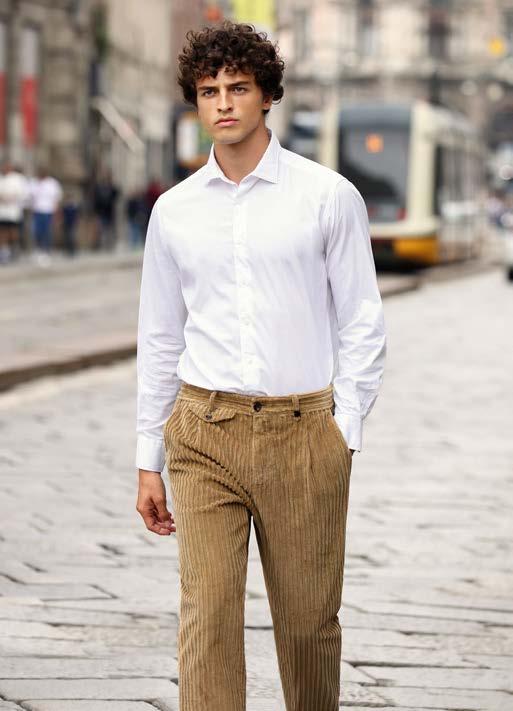WHAT'S THE STORY
The Future – Why?
WHAT’S YOUR PURPOSE?
Stores going out of business, a lack of young talent, saturated markets, and powerful competition are but a few buzzwords that regularly dominate retail forecasts. Despite gloomy predictions, recent years have seen the emergence of concepts that prioritise their own WHY over classic trade rules. What does this generation of founders do differently and what drives them? Text: Stefanie Buchacher. Photos: Interviewees
THE FASHION RENTAL MODEL STAY AWHILE Hamburg & Magdeburg/Germany
Thekla Wilkening and a business partner launched the fashion rental model in a store named Kleiderei as early as 2012. Despite the insolvency that followed six years later – or rather because of it – the 32-year-old launched another fashion rental concept at the end of 2018. Stay Awhile is affiliated with Kilenda, a rental service for children’s clothing and toys, and now cooperates with brands such as Armedangels, Lana, Shipsheip, Jan’n June, and Lanius – all of which manufacture fairly and organically. Stay Awhile follows the “Rent Your Look” principle. After a personal consultation on individual fashion preferences, subscribers receive a curated selection. Favourite pieces can be bought later. The remaining pieces are returned, cleaned, reconditioned, and re-injected into the rental cycle. Currently, 60 to 70 percent of all subscriptions are individually curated. The remaining subscribers make their own choices from the product range, which is presented like an online shop. “I believe the ‘Fashion to Buy’ model is outdated. It is not acceptable for us to produce fashion as garbage,” says Wilkening. In her opinion, it is time to rethink the responsibility of ownership and act more sustainably. She expects a trend reversal in wardrobes over the next few years: “I think we will own no more than 50 percent of our clothing in the future. The rest will be borrowed, rented, or bought as an investment to wear and resell.” Wilkening’s dream is that the wearer will only have to pay rent for the usage of a garment, while the producer shoulders the responsibility for the piece. “We share our flats on Airbnb and use hotel rooms that are frequented by different people night after night. The inhibition to share clothes with other people is only in our heads.”
156
style in progress
“It’s time to rethink the responsibility of ownership.” Thekla Wilkening
HE MARKETPLACE FOR ECO FASHION T AND GREEN LIFESTYLE AVOCADOSTORE Hamburg/Germany
With a 10-year history to look back on, Avocadostore is one of the pioneers of sustainable consumption. Today, it is Germany’s largest marketplace for eco fashion and green lifestyle. What initiators Philipp Gloeckler and Stephan Uhrenbacher set in motion has been continued by Mimi Sewalski, who joined the business in the founding phase and ascended to Managing Director in 2013. “We wanted to create something that hadn’t existed before – a kind of green Amazon. The result is a marketplace that brings together fair trade retailers,” says the 38-year-old, who stumbled upon Avocadostore by chance. Previously, the sociologist and criminologist






















































